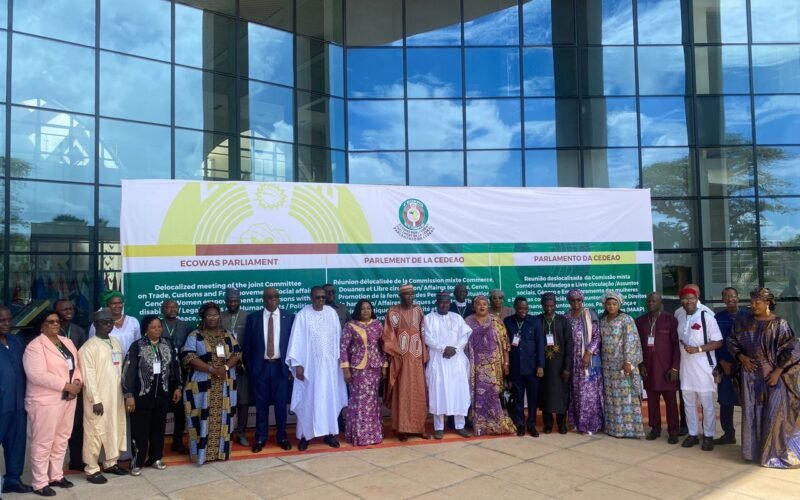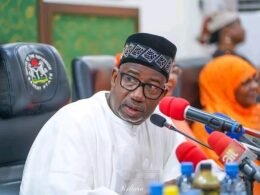Hajia Memounatou Ibrahima, Speaker of the Economic Community of West African States (ECOWAS) Parliament, has identified key obstacles to the effective implementation of the ECOWAS Free Movement Protocol. Speaking at a delocalized meeting of the Joint Committee on Social Affairs, Gender and Women’s Empowerment, Legal Affairs and Human Rights, Political Affairs, Peace, Security and the African Peer Review Mechanism (MAEP), Legal and Human Rights, and Trade, Customs, and Free Movement, in Banjul, The Gambia, Ibrahima highlighted several critical issues.
The meeting, held on Monday, addressed ongoing challenges to regional integration, a cornerstone of ECOWAS’s mission. Ibrahima underscored that while the Free Movement Protocol, adopted on May 29, 1975, was designed to facilitate the entry, movement, residence, and economic activities of ECOWAS citizens across member states, several impediments have stymied its full implementation.
Key issues identified by Ibrahima include:
- Weaknesses in Implementation Mechanisms: There are significant flaws in how the protocol is enforced, which hamper its effectiveness.
- Differences in National Interests: Varying priorities and interests among member states create inconsistencies in the application of the protocol.
- Infrastructure Problems: Inadequate infrastructure further complicates the implementation of free movement.
Ibrahima emphasized that achieving the protocol’s objectives requires robust governance, mutual trust, and shared responsibility. She called for the establishment of mechanisms for continuous monitoring to enhance the effectiveness of the protocol, noting that the ECOWAS Parliament is well-positioned to conduct these audits and maintain balance within the ECOWAS framework.
During the opening of the event, Rt. Hon. Fabakary Tombong Jatta, Speaker of the Gambian National Assembly, highlighted the critical role of parliamentarians in advancing ECOWAS protocols. Jatta pointed out that many citizens face considerable difficulties crossing borders due to security challenges such as terrorism and transborder trafficking. He stressed the importance of harmonizing national laws with regional commitments to foster economic growth through the facilitation of free movement for both goods and people.
Jatta urged the committee to focus on legislative reforms and oversight that would enable member states to review and amend immigration policies and labor laws affecting free movement. He concluded, “There is an urgent need to ensure that our laws facilitate, rather than hinder, the movement of people across West African borders.”
The meeting underscored the ongoing commitment to addressing these challenges and advancing regional integration through more effective implementation of the ECOWAS Free Movement Protocol.









